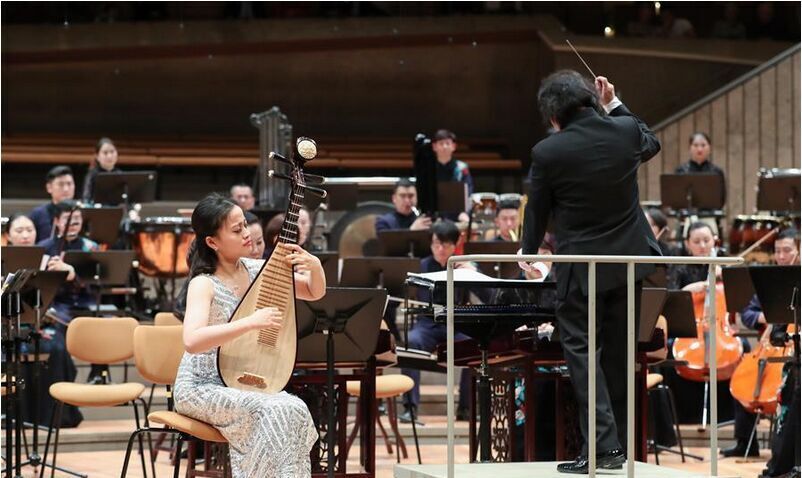China-Germany ties deepen as European integration faces hurdles

A Chinese concert is held at a music hall in Berlin, Germany as part of cultural activities to celebrate the 45th anniversary of the establishment of China-Germany diplomatic relations.
The China-Germany relationship in the context of a turbulent European political climate was the theme of a recent symposium held by the Center on German Studies at Tongji University from June 30 to July 1.
The year 2017 marks the 45th anniversary of the establishment of China-Germany diplomatic relations. Bilateral relations have reached an unprecedented level in fields ranging from economy and trade to diplomacy, security, technology, education and culture, especially since the establishment of a comprehensive strategic partnership in 2014.
China and Germany deepened and broadened their cooperation in 2013 because both nations had the need to cooperate on energy technology as well as the fight against terrorism and climate change, said Sun Keqin, a research fellow from the China Institutes of Contemporary International Relations. Bilateral cooperation on international issues can offer practical solutions to international turbulence, strengthen global governance and establish a new international order, Sun said.
Generally speaking, bilateral relations are well developed and stable, and mutually beneficial cooperation is at the core. The two nations are at different developmental stages but have complementary economic structures. The cooperation between the two nations has increased in scope and depth, playing a leading role in China-EU relations, said Mei Zhaorong, former Chinese ambassador to Germany.
The German federal election scheduled for September this year is a hot topic amid increasing international uncertainties. Mei said that bilateral relations will not be affected by the results of the German election. Brexit, on the other hand, had a more profound aftermath. More attention should be paid to ties between China and the European Union in addition to China-Germany relations in the post-Brexit era, he said.
In terms of the prospects of European integration, Lian Yuru, a professor of international relations from Peking University, said the EU guiding principle of subsidiarity, which states that matters should be handled by the most-local competent authority, is vital to European integration. At the same time, Germany and France are the major leaders of European integration, she said.
Chen Xin from the Institute of European Studies at the Chinese Academy of Social Sciences said the principle of subsidiarity is just an instrument, adding that it is insufficient to lead Europe toward integration. Europe is developing from economic integration toward political integration, complicating the settlement of European issues and causing troubles for European people, he said.
The crises in Europe now reflect the setbacks that European integration has been facing against the background of economic globalization and a historical period of forced adjustment, said Xiong Wei, a professor of diplomacy from China Foreign Affairs University.
Transnational terrorism is currently the biggest threat to Europe. Brexit and the United States’ abandonment of some of its NATO obligations have forced Germany to adopt new security policies. Zheng Chunrong, director of the Center for German Studies at Tongji University, said Germany has participated in settling international crises through multilateral mechanisms. It will also flexibly use various temporary platforms in the future.
Generally speaking, Germany will shift from indirect to direct intervention in crises and conflicts, pursuing the projection of greater influence, Zheng said.
LI YU and ZHA JIANGUO are reporters at the Chinese Social Sciences Today.

 PRINT
PRINT CLOSE
CLOSE